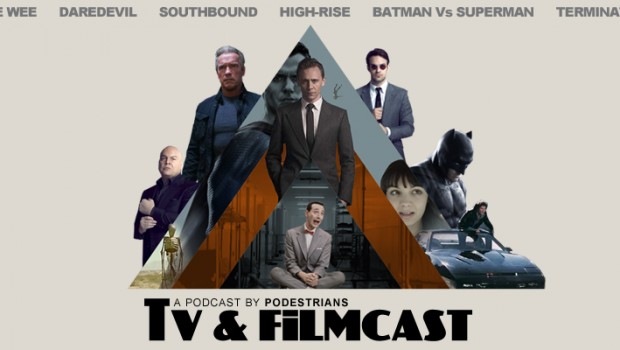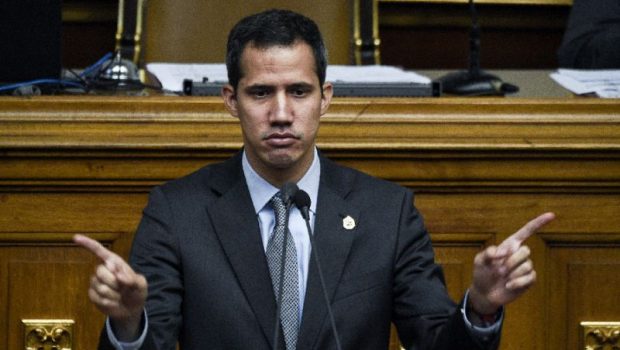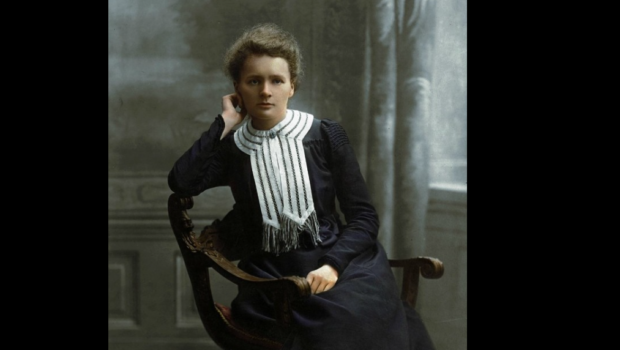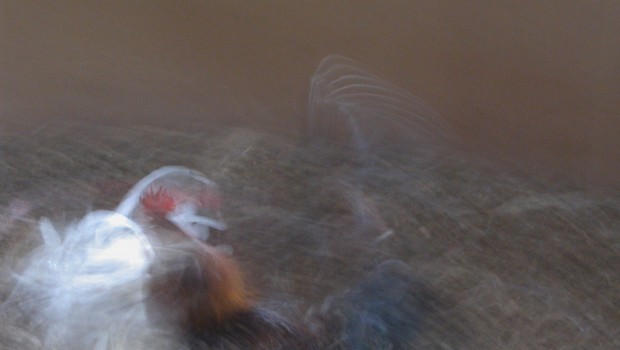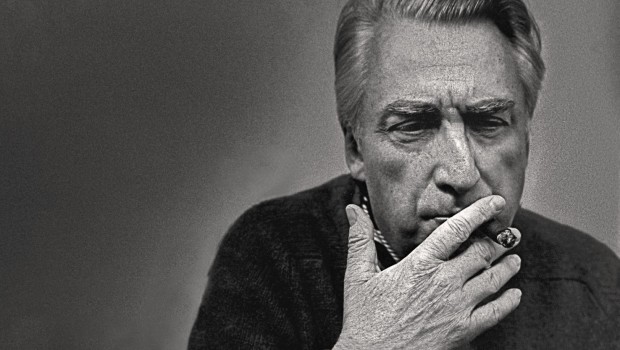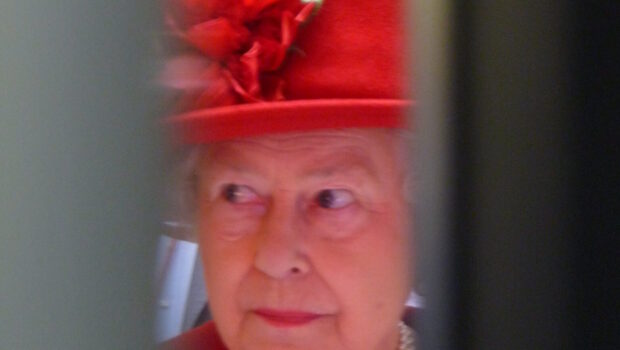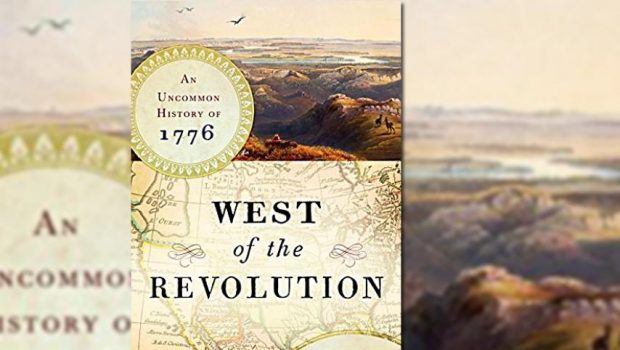A false mist
Un falso vaho
Giovanna Rivero
They hit him. First on the nose. Already on the floor, in the stomach, in the balls, in the spine. When they leave, he fumbles for the glasses. He puts them on, and I feel a strange relief. As if with the glasses on the “thrashing” hurt less.
For years I tried to get that painful memory out of the caverns of memory. So I wrote a novel –98 segundos sin sombra– in which I try to be loyal to an innocent and desperate voice. The exorcism, however, is not over, from time to time I am struck by memories of those years when drug trafficking performed one of its most sinister acts of black magic: as in misunderstood fairy tales, my people had been transformed into another thing. While it was true that the phrase “small town, big hell” had always been true –a slightest rumor in that town ignited unstoppable suspicions– with the pichicata, as cocaine is called in Bolivia, a greasy layer of strangeness dirtied human relationships. Nothing to do, of course, with Freudian strangeness, which emerges from the notion that the other has always been a stranger. This strangeness originated in the alienation of the spirit.
It is precisely that disturbing aftertaste that prevails when I think of the eighties decade of my people, the old hangover of the alienation of the spirit. Furthermore, if I were to make a very brief Georges Perec-style list of memories of how cocaine altered the consciousness of an entire people, I would have three, although the small traumas are countless:
- I remember, in effect, when a gang of five men hit the history teacher at the school gates.
- I remember when the birthday party souvenirs were bicycles or gold key rings.
- I remember when people started talking about ‘rehabilitation farms’. It was hard for me not to think of chickens.
(My younger brother is not on this list because I reserve love for him and not just trauma. He also looked for cocaine. The cliffs of bipolarity had devastated him and there were times when just the consumption of that powder gave him peace. A tiny and very expensive peace, a peace supported by chopsticks. In any case, I appreciate those moments when the voices, the indescribable unease, the non-transferable loneliness gave him a truce. And if I mention it now it is because I try – perhaps without success– thinking about these events, these ghosts –my brother, my history teacher, the great misunderstanding– without a moralistic desire. And if someone looks for cocaine it is because cocaine gives them something that probably seems far away, perhaps impossible, by other paths. I think of that equation in an attempt to draw one of the reasons why educational campaigns, declared wars, and institutional efforts seem to make a little dent in that tentacular monster that is drug traffic).
The history teacher
The teacher walks towards the school infirmary leaning on the principal’s shoulder. They, the nuns are who have come to the gate to stop the five thrashing guys. They call us to the patio, the principal takes the megaphone, and they say us to pray for justice, that what we have seen from the classroom windows is its counterpart, the saddest ignominy. She uses that word and does not care if we understand it with intelligence, surely she trusts that we decipher it with the guts. Ignominy. Someone says in a whisper that they hope at least let us leave earlier. Unlike other times, nobody gets very excited about the idea. We feel that they have beaten us all, that they have humiliated us all. Or how else does one process -with the mind or the guts- that five bullies come to the gate of a girls’ school to give such a beating to the history teacher?
We look for reasons, but there are none. Was it that morning that the professor compared the “Opium War” to the “War of the Pichicata”? Was it that one of us – we know who – brought the story of the school lesson to her father’s ears as if she were an affront? What things could the history teacher teach us that his warning and his admonition would not touch upon the facts of our immediate contemporaneity?
One morning the history teacher explained to us that the “Opium War” had been a strategy for England to regain its former economic power after China made tea its flagship product. Since the second half of the 18th century, the world demand for tea had enriched China. At the beginning of the 19th century, this heyday was instituted as a great danger to other empires. England needed to offer a product that would clean up the balance between what it imported and exported. Smuggling opium from India to China was the solution. When China created strict laws to regulate and punish the widespread opium trade that had put its workers to sleep, England re-angled its business using North American merchants who brought the produce from India, so that England looked flawless. Of course, when England itself had to go through the darkest corridors of its endemic Industrial Revolution, that opium turned against it. The breakdown of social ties that the division of labor and its eight hours in the factory had generated, in turn, unleashed unprecedented rates of crime, suicide and prostitution. Opium temporarily made this massive solitude acceptable, but it took with it the spirit of the times, the breath of generations that, hopefully, had seen the birth of a magnificent revolution of metal, gear and steam. The steam remained.
That same morning, the history teacher said that the pichicata was a way to become colonies of an economic model similar to the one that England had implemented. Modernity? He wondered, taking off his glasses to clean them with his breath. That word has always been problematic. During the Industrial Revolution, opium had done its thing; the “laudanum” – so musical in its sound – was the way to feel alive, even though it was getting closer and closer to an ordinary death, and they were modern. Much. In our town, all the pichicateros were servile merchants – poor puppets levitating without a floor thanks to hollow money. It was they who enriched a greater monster. Nothing to envy the servants of feudalism. And we, did we think we were modern? Seriously? Sometimes I think I remember that we turned red, but it could also be adolescence, that constant state of modesty.
Then, of course, came the beating.
The farms
Sometimes someone got lost for a while. It was not necessary to ask. He was on a “farm”. This is how the rehabilitation centers were called, which surely experimented with all kinds of methods to carry out an endeavor as huge as convincing an addicted person to be lucid, awake, aware of the world – even if the world was shit – it was better. I had a boyfriend who spent time there. He sometimes joked: “A season on a farm.” It was a Paraguayan farm that used religious conversion as its most effective tool. God was a substitute for cocaine. In China, the state had tried to replace opium, to install itself with its phallic rotundity in the hearts of its subjects, and its failure consisted precisely in that: the plane of the real offered nothing that wove a thread between the unbearable loneliness of a soul surrounded by economism and the thirst for a sacred transcendence in a more here, of a sense. The state and its system of prohibitions have never had either the eroticism or the narcosis that narcotics provide. The farms knew it and that is why they looked for other passions that could first cut and then replace the powerful emotional bond with cocaine. How to stop loving it? How to transfer that needy love to another substance, matter, potency, idea, and reality? How to feel overwhelmingly loved by another absolute entity?
Souvenirs
No, I never received a gold keychain or late-model bike from any party. Perhaps they were the kind of legends that drug trafficking circulates as part of their aura, perhaps they did not invite me, perhaps I invented the memory. A fake eighties fog. What is true is that the people lived on the cusp of their excesses. While for people who subsisted on a minimum wage, the money was worth nothing – I remember Dad bringing his salary home in two black bags as if he had committed murder – for those who trafficked pichicata, the money was not worth anything either, but for other reasons. Due to its lack of meaning, it was necessary to “empty” it into souvenirs that would occupy with its excess the circumstance of anomie in which the people existed. What I am trying to tie to this memory token is the hyperinflation that hit Bolivia between 1982 and 1985. That was the perfect breeding ground for drug trafficking to establish itself as an escape route from that suffocating precariousness. Although it is also believed that the inflamed drug money further destabilized the already critical economic stretch of the mid-decade. This incredible and labyrinthine aporia divided the people between those who tried to force the matter to take the indecent form of their desires and those who survived embracing an opaque reality, but true even in its opacity. Living authentically in the eighties was equivalent to breathing on the margins, always on the margins. And maybe every now and then take a beating.
Being for death
To it we are destined, says Heidegger, to death, and our only parenthesis in that fate is to live an authentic life. What I am simplifying so grossly might seem like a self-help aphorism. However, authenticity – whose semantics has been so worn out – is a terrible, colossal undertaking, even superhuman. It involves living existence as it comes, without slipping through the escape doors, knowing that death is movingly intimate to us. But this existence as it comes requires other anchors, elements of subjection to which our pact with modernity has forced us to renounce. Thus, the sacred – and I’m not talking about religion, please – could constitute that mast that allows us to keep our eyes open. The sacred, unfortunately, is now a simulacrum of transcendence, a system of superstitions, a gesture, or a hallucinatory happening. In Greco-Roman mythology – to which we are in eternal debt -, one of the cruelest punishments that a god or goddess could impose on an enemy was to snatch his consciousness or to overlap it in the form of an animal, unable to translate in language. In some depictions of the goddess Hera, for example, we see her carrying a poppy (later she will replace it with a pomegranate). With this flower, Hera snatches the consciousness of the world from her rivals. What sadness for the drugged not to be able to throw themselves into existence with the totality of their being! Hera knows this, as the bad and impatient fairies of tales have always known, who use all their esoteric abilities to put princesses or entire villages to sleep if need be. A kingdom sunk in unconsciousness for a hundred years loses its generations, loses its history, loses its time, loses the natural cycles of death.
I retrace my steps, that is, my paragraphs, and I realize that I have not been able to evade that semi-moralistic tone that scares me so much. It probably is. Perhaps these types of issues always corner us in a corner of the ring. So from this harrowing ring, I try, uselessly, I know, to give an uppercut to the initial question: Why do prohibitionist systems fail in their fight against drug trafficking? My answer: because cocaine and other synthetic drugs, in their ominous transignification, have filled the innate thirst for those who exist, those who exist, the thirst for the sacred. That sacred that is longed for and that is no longer there – because we only have things left, the accumulations of things in their different species – is, in my opinion, the notion that the hard work of living is worth the effort. The sacred is simple: the acceptance that life has not promised us anything extraordinary, neither ecstasy nor abysmal narcosis. Life just is. The narratives of capital promise us exactly the opposite. How painful. What a fucking pain. The world materialized to the extreme becomes an accomplice of this imposture. Who, then, would want to live lucidly in an atrocious world? And for what?
*Photo by Morgan Basham
Lo golpean. Primero en la nariz. Ya en el suelo, en el estómago, en las bolas, en la columna. Cuando se van, él busca los lentes a tientas. Se los pone y yo siento un extraño alivio. Como si con los lentes puestos la ‘tunda’ doliera menos.
Durante años trato de sacarme de las cavernas de la memoria ese recuerdo doloroso. Entonces escribo una novela –98 segundos sin sombra– en la que intento ser leal a una voz inocente y desesperada. El exorcismo, sin embargo, no ha terminado, de vez en cuando me asaltan recuerdos de esos años en los que el narcotráfico ejecutó uno de sus actos de magia negra más siniestros: como en los incomprendidos cuentos de hada, mi pueblo se había transformado en otra cosa. Si bien era cierto que la frase “pueblo chico, infierno grande” siempre había sido verdad –un mínimo rumor en ese pueblo se encendía imparables sospechas–, con la ‘pichicata’, como así se le llama a la cocaína en Bolivia, una grasosa capa de extrañeza ensuciaba las relaciones humanas. Nada que ver, por supuesto, con la extrañeza freudiana, esa que emerge de la noción de que el otro ha sido siempre un desconocido. Esta extrañeza se originaba en la enajenación del espíritu.
Precisamente es ese regusto inquietante el que prevalece cuando pienso en los años ochenta de mi pueblo, la vieja resaca de la enajenación del espíritu. Es más, si tuviera que hacer un listado brevísimo al estilo Georges Perec de los recuerdos del modo en que la cocaína alteró la consciencia de todo un pueblo, me quedaría con tres, aunque los pequeños traumas sean incontables:
1) Me acuerdo, en efecto, cuando al profesor de historia una pandilla de cinco hombres lo golpeó en las puertas de la escuela.
2) Me acuerdo cuando los souvenirs de las fiestas de cumpleaños eran anillos de oro grabados con el nombre de la persona agasajada.
3) Me acuerdo cuando se comenzó a hablar de las ‘granjas de rehabilitación’. Se me hacía difícil no pensar en pollos. Pobres pollos.
(En este listado no está mi hermano menor porque a él le reservo el amor y no solo el trauma. Él también buscó la cocaína. Los despeñaderos de la bipolaridad lo habían devastado y hubo momentos en que solo el consumo de ese polvo le daba paz. Una paz ínfima y carísima, una paz apuntalada por palitos chinos. De todos modos, agradezco esos momentos en que las voces, la indescriptible desazón, la soledad intransferible le daban una tregua. Y si lo menciono ahora es porque intento –tal vez sin mucho éxito– pensar en estos eventos, en estos fantasmas –en mi hermano, en mi maestro de historia, en el gran equívoco– sin un afán moralista. Y es que si alguien busca cocaína es porque la cocaína le da algo que probablemente parezca lejano, acaso imposible, por otros senderos. Pienso en esa ecuación en un intento por dibujar una de las razones por las que las campañas educativas, las guerras declaradas, los esfuerzos institucionales parecen hacer poca mella en ese monstruo tentacular que es el narcotráfico).
El maestro de historia
El profesor camina hacia la enfermería de la escuela apoyándose en el hombro de la directora. Son ellas, las monjas, quienes han salido hasta el portón para detener a los cinco tipos zurradores. Nos llaman al patio, la directora toma el megáfono y dicen que oremos por la justicia, que lo que hemos visto desde las ventanas de las aulas es su contraparte, la más triste ignominia. Usa esa palabra y no le importa si la entendemos con la inteligencia, seguramente confía en que la desciframos con las vísceras. Ignominia. Alguien dice en un susurro que ojalá, por lo menos, nos dejen salir más temprano. A diferencia de otras veces, nadie se entusiasma mucho con la idea. Sentimos que nos han golpeado a todas, que nos han humillado a todas. ¿O de qué otro modo uno procesa –con la mente o con las vísceras– que cinco matones vengan al portón de una escuela de chicas a propinar semejante paliza al maestro de historia?
Buscamos razones, pero es que no las hay. ¿Fue acaso esa mañana en que el profesor comparó la “Guerra del opio” con la “Guerra de la pichicata”? ¿Fue acaso que una de nosotras –sabemos quién– llevó el relato de la lección escolar a los oídos de su padre como si fuera una afrenta? ¿Qué cosas podía el maestro de historia enseñarnos que no tocara con su advertencia y su admonición los hechos de nuestra inmediata contemporaneidad? Una mañana el maestro de historia nos explicó que la “Guerra del opio” había sido una estrategia de Inglaterra para recuperar su antiguo poderío económico luego de que China hiciera del té su producto estrella. Desde la segunda mitad del XVIII, la demanda mundial del té había enriquecido a China. A comienzos del siglo XIX ese apogeo se instituyó como un gran peligro para otros imperios. Inglaterra necesitaba ofrecer un producto que saneara el balance entre lo que importaba y exportaba. Contrabandear opio desde la India hacia China fue la solución. Cuando China creó leyes estrictas para regular y castigar el extendido tráfico de opio que había adormecido a sus trabajadores, Inglaterra trianguló su negocio usando a mercaderes norteamericanos que llevaban el producto desde la India, de tal modo que Inglaterra lucía impecable. Claro que cuando la propia Inglaterra debió atravesar los pasillos más oscuros de su endémica Revolución Industrial, ese opio se volvió en contra suya. El resquebrajamiento de los vínculos sociales que la división del trabajo y sus ocho horas de fábrica habían generado desató, a su vez, inéditas tasas de delincuencia, suicidio y prostitución. El opio hizo temporalmente aceptable esa soledad masiva, pero se llevó consigo el espíritu de los tiempos, el hálito de generaciones que, esperanzadas, habían visto nacer una magnífica revolución de metal, engranaje y vapor. Quedó el vapor.
Esa misma mañana, el maestro de historia dijo que la pichicata era una forma de convertirnos en colonias de un modelo económico similar al que había implementado Inglaterra. ¿Modernidad?, se preguntó, quitándose los lentes para limpiarlos con su propio aliento. Esa palabra siempre ha sido problemática. Durante la Revolución Industrial el opio había hecho de las suyas; el “láudano” –tan musical en su sonido– era la forma de sentirse vivos, aunque se estuviera cada vez más cerca de una muerte ordinaria, y eran modernos. Mucho. En nuestro pueblo, todos los pichicateros eran mercaderes serviles –pobres títeres levitando sin piso gracias al dinero hueco–. Eran ellos quienes enriquecían a un monstruo mayor. Nada que envidiarles a los siervos del feudalismo. Y nosotras, ¿nos creíamos modernas? ¿En serio? A veces creo recordar que nos pusimos rojas, pero también podía ser la adolescencia, ese constante estado de pudor.
Luego, claro, vino la paliza.
Las granjas
A veces, alguien se perdía durante un tiempo. No era necesario preguntar. Estaba en una “granja”. Así se les llamaba a los centros de rehabilitación, que seguramente experimentaban con todo tipo de métodos para llevar adelante una empresa tan mayúscula como convencer a una persona adicta de que estar lúcida, despierta, consciente del mundo –aun cuando el mundo fuera una mierda– era mejor. Tuve un novio que pasó allí una temporada. A veces bromeaba: “Una temporada en una granja”. Se trataba de una granja paraguaya que usaba la conversión religiosa como su herramienta más eficaz. Dios sustituía a la cocaína. En China, el estado había intentado sustituir al opio, instalarse con su rotundidad fálica en los corazones de sus súbditos, y su fracaso consistió precisamente en eso: el plano de lo real no ofrecía nada que tejiera una hebra entre la soledad insoportable de un alma cercada por el economicismo y la sed de una trascendencia sagrada en un más acá, de un sentido. El estado y su sistema de prohibiciones nunca han tenido ni el erotismo ni la narcosis que brindan los estupefacientes. Las granjas lo sabían y por eso buscaban otras pasiones que pudieran primero cortar y luego sustituir el poderoso lazo afectivo con la cocaína. ¿Cómo dejar de amarla? ¿Cómo transferir ese amor necesitado a otra sustancia, materia, potencia, idea y realidad? ¿Cómo sentirse arrasadoramente querido por otra entidad absoluta?
Los souvenirs
No, yo nunca recibí ningún llavero de oro o bicicleta último modelo de fiesta alguna. Quizás eran leyendas de esas que el narcotráfico pone a circular como parte de su aura, quizás no me invitaron, quizás me inventé el recuerdo. Un falso vaho ochentero. Lo que es verdadero es que el pueblo vivía en la cúspide de sus excesos. Mientras para las personas que subsistían de un mínimo salario, el dinero no valía nada –recuerdo a papá trayendo su sueldo a casa en sendas bolsas negras, como si hubiera cometido un asesinato–, para quienes traficaban pichicata, el dinero tampoco valía nada, pero por otros motivos. Por su falta de sentido, era necesario ‘vaciarlo’ en souvenirs que ocuparan con su desmesura la circunstancia de anomia en que existía el pueblo. Lo que intento amarrar a este token del recuerdo es que la hiperinflación que azotó Bolivia entre 1982 y 1985 fue el terreno de cultivo perfecto para que el narcotráfico se instalara como una vía de escape a esa precariedad asfixiante. Aunque también se cree que el dinero inflamado del narcotráfico desestabilizó incluso más el ya crítico tramo económico de mediados de la década. Esta increíble y laberíntica aporía dividió al pueblo entre quienes intentaban obligar a la materia a tomar la forma indecente de sus deseos y quienes sobrevivían abrazados a una realidad opaca, pero cierta aun en su opacidad. Vivir auténticamente en los ochenta equivalía a respirar en los márgenes, siempre en los márgenes. Y quizás, de vez en cuando, recibir una paliza.
El ser para la muerte
A ella estamos destinados, dice Heidegger, a la muerte, y nuestro único paréntesis en ese sino es vivir una vida auténtica. Esto que simplifico de manera tan burda podría parecer, así, un aforismo de autoayuda. Sin embargo, la autenticidad –cuya semántica ha sido tan desgastada– es una empresa terrible, descomunal, incluso superhumana. Implica vivir la existencia como viene, sin escurrirnos por las puertas de escape, sabiendo que la muerte nos es conmovedoramente íntima. Pero esta existencia como viene precisa de otros anclajes, elementos de sujeción a los que nuestro pacto con la modernidad nos ha obligado a renunciar. Así, lo sagrado –y no hablo de religión, por favor– podría constituir ese mástil que nos permita mantenernos con los ojos abiertos. Lo sagrado, por desgracia, es ahora un simulacro de trascendencia, un sistema de supersticiones, un gesto o un happening alucinatorio. En la mitología grecorromana –con la que estamos en eterna deuda–, uno de los castigos más crueles que un dios o una diosa podía imponer a un enemigo consistía en arrebatarle la consciencia o el de solaparla bajo la forma de un animal, incapaz de traducirse en el lenguaje. En algunas representaciones de la diosa Hera, por ejemplo, la vemos cargando una amapola (luego la reemplazará por una granada). Con esta flor, Hera arrebata a sus rivales la consciencia del mundo. ¡Qué tristeza para los narcotizados no poder arrojarse a la existencia con la totalidad de su ser! Hera lo sabe, como siempre lo han sabido las hadas malas e impacientes de los cuentos, que usan todas sus habilidades esotéricas para dormir princesas o pueblos enteros si es preciso. Un reino sumido en la inconsciencia durante cien años pierde sus generaciones, pierde su historia, pierde su tiempo, pierde los ciclos naturales de la muerte.
Vuelvo sobre mis pasos, es decir, sobre mis párrafos, y me doy cuenta de que no he podido evadir ese tonito semimoralista que tanto me asusta. Probablemente es así. Tal vez este tipo de temas nos arrincone siempre en una esquina del ring. De modo que desde este angustioso cuadrilátero intento, inútilmente, lo sé, propinar un uppercut a la interrogación inicial: ¿Por qué fracasan los sistemas prohibicionistas en su lucha contra el narcotráfico? Mi respuesta: porque la cocaína y otras drogas sintéticas, en su ominosa transignificación, han llenado la sed connatural al que existe, a la que existe, la sed de lo sagrado. Eso sagrado que se ambiciona y que ya no está –porque solo nos quedan las cosas, los cúmulos de cosas en sus distintas especies– es, a mi pequeño entender, la noción de que vale la pena el trabajo esforzado de vivir. Lo sagrado es sencillo: la aceptación de que la vida no nos ha prometido nada extraordinario, ni el éxtasis, ni la abismal narcosis. La vida solo es. Las narrativas del capital nos prometen exactamente lo opuesto. Qué dolor. Qué jodido dolor. El mundo materializado al extremo se vuelve cómplice de esa impostura. ¿Quién, pues, querría vivir lúcidamente en un mundo atroz? ¿Y para qué?
*Este texto fue publicado originalmente en el proyecto de la plataforma digital Drogas, Políticas y Violencias.
 Giovanna Rivero (Bolivia). Es doctora en literatura hispanoamericana por la University of Florida. Es autora de los libros de cuentos Tierra fresca de su tumba (2020) y Para comerte mejor (2015), y de la novela 98 segundos sin sombra (2014), entre otros libros. Fue seleccionada por la Feria Internacional del Libro de Guadalajara como uno de “Los 25 Secretos Literarios Mejor Guardados de América Latina” (2011). Académica independiente. Junto a Magela Baudoin y Mariana Ríos dirige Editorial Mantis. Coordina talleres de escritura y lectura online. https://giovannarivero.com/
Giovanna Rivero (Bolivia). Es doctora en literatura hispanoamericana por la University of Florida. Es autora de los libros de cuentos Tierra fresca de su tumba (2020) y Para comerte mejor (2015), y de la novela 98 segundos sin sombra (2014), entre otros libros. Fue seleccionada por la Feria Internacional del Libro de Guadalajara como uno de “Los 25 Secretos Literarios Mejor Guardados de América Latina” (2011). Académica independiente. Junto a Magela Baudoin y Mariana Ríos dirige Editorial Mantis. Coordina talleres de escritura y lectura online. https://giovannarivero.com/
©Literal Publishing. Queda prohibida la reproducción total o parcial de esta publicación. Toda forma de utilización no autorizada será perseguida con lo establecido en la ley federal del derecho de autor.
Las opiniones expresadas por nuestros colaboradores y columnistas son responsabilidad de sus autores y no reflejan necesariamente los puntos de vista de esta revista ni de sus editores, aunque sí refrendamos y respaldamos su derecho a expresarlas en toda su pluralidad. / Our contributors and columnists are solely responsible for the opinions expressed here, which do not necessarily reflect the point of view of this magazine or its editors. However, we do reaffirm and support their right to voice said opinions with full plurality.



